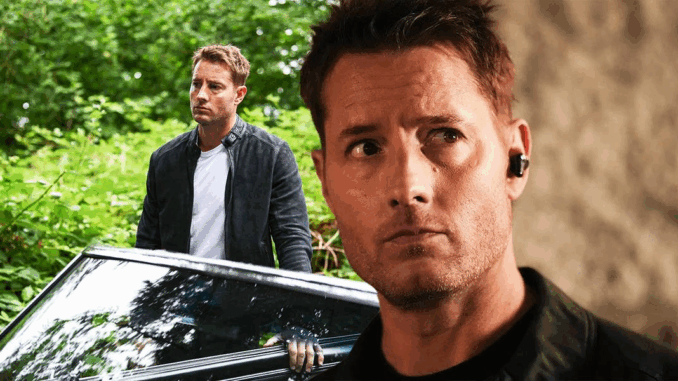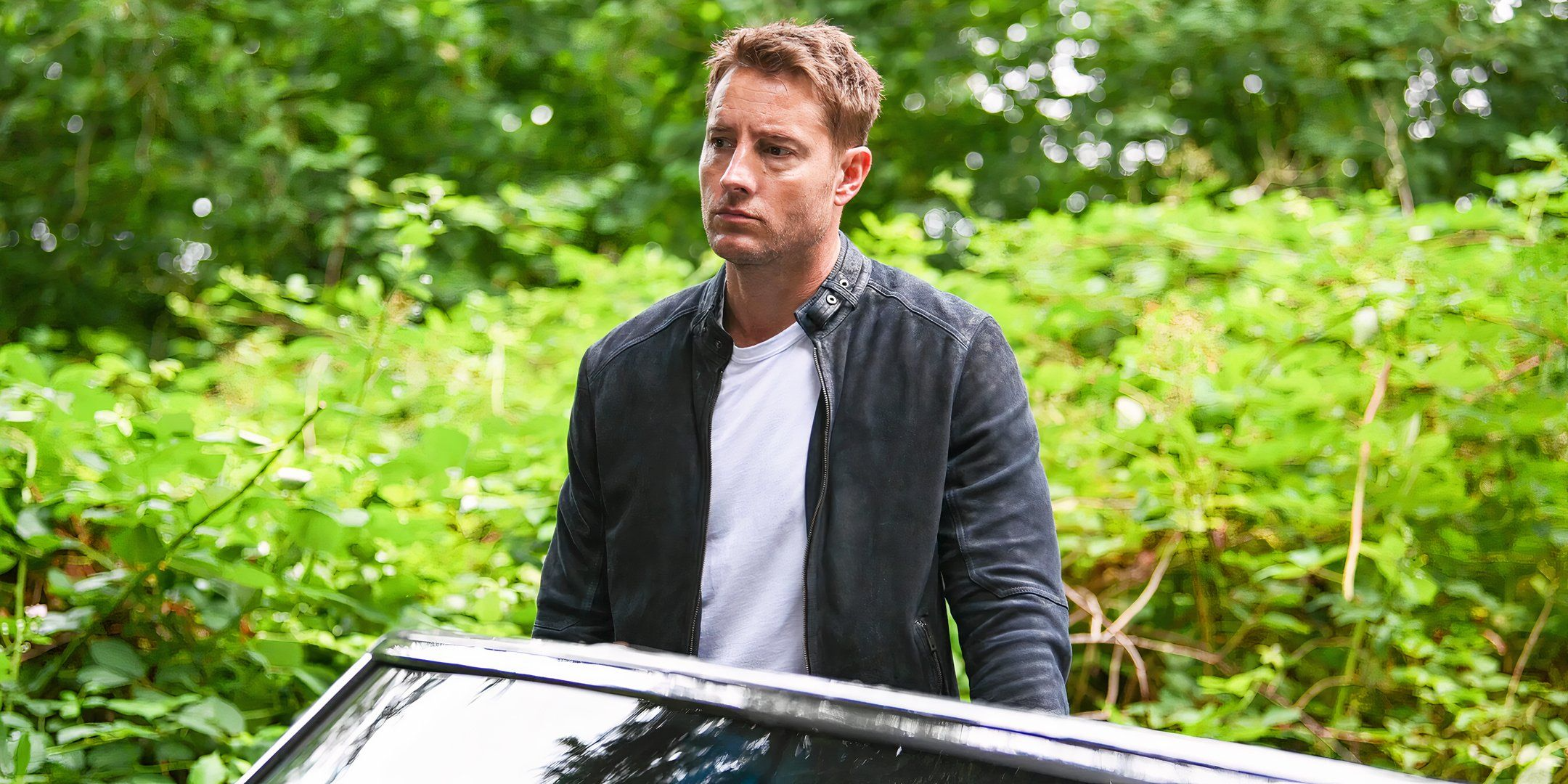
A Lone Hero in a Lawless World
In an age of high-tech crime shows, courtroom dramas, and forensic procedurals, CBS’s Tracker breaks the mold—not with futuristic gadgets or flashy explosions, but with a solitary man and a battered truck traveling across America in search of justice. Starring Justin Hartley as Colter Shaw, a freelance tracker and survivalist, the show taps into something much older than television: the timeless myth of the lone hero.
Like the gunslingers of classic Westerns, Colter is a drifter. He moves from town to town, taking on cases the system can’t—or won’t—solve. But instead of riding horseback through the Old West, he rides across modern highways. His weapons aren’t revolvers, but intuition, observation, and deep knowledge of human behavior.
Tracker is, in every way, a modern Western, dressed in 21st-century clothes. And that’s what makes it so compelling.
The Open Road as the New Frontier
One of the show’s most striking features is its geography. Tracker doesn’t take place in a single city or precinct—it spans the entire country. Each episode introduces a new location: isolated mountain towns, vast deserts, dense forests, suburban neighborhoods hiding dark secrets. The variety in setting reinforces the idea that Shaw isn’t part of any system. He answers to no one, belongs nowhere, and is always just passing through.
This sense of motion, of constant movement through the American landscape, echoes the spirit of the Western genre, where the frontier was both a place and a symbol. For Shaw, the road represents freedom—but also exile. He doesn’t settle. He can’t. He’s always chasing something—someone.
Whether it’s a missing person or a piece of himself lost in childhood trauma, the journey never ends.
Colter Shaw: The New American Cowboy
Justin Hartley delivers a performance that blends physical intensity with emotional subtlety. His Colter Shaw is not loud or flashy. He’s not a wisecracking TV detective. He’s a man who speaks softly, moves precisely, and observes everything. Hartley’s portrayal is deeply internal—more Clint Eastwood than CSI.
Shaw embodies many of the classic cowboy traits:
-
Lone wolf behavior
-
A personal moral code that overrides official rules
-
A quiet charisma rooted in competence
-
A troubled past that haunts the present
But unlike old-school cowboys, Shaw is emotionally vulnerable. He feels deeply. He questions himself. He wrestles with guilt and trauma. He’s not just stoic—he’s scarred. And Tracker gives us space to see those scars.
A Personal History That Feeds the Myth

The Western genre has always romanticized the loner hero: the man with no name, the rider who arrives to right a wrong and disappears before sunrise. Tracker pays homage to that tradition but adds psychological depth.
Colter’s past is not a mystery box gimmick—it’s the emotional engine of the series. Raised by a paranoid survivalist father, Colter grew up learning how to track, hunt, and survive—but not how to trust. His family fell apart under the weight of secrecy, mental illness, and loss.
Now, as an adult, he uses the skills his father taught him to help strangers. But every case triggers something deeper—a memory, a regret, a desire to rewrite the past. He’s not just chasing missing people. He’s trying to rescue himself.
This complexity makes Shaw more than a TV hero. He becomes a modern myth: the man torn between justice and peace, between action and healing.
A Different Kind of Law
In the classic Western, the sheriff and the outlaw were often two sides of the same coin. The law was more about justice than rules. Tracker carries this tradition forward. Colter operates outside official structures—he’s not a cop, not a private investigator. He works for reward money, but rarely cares about the paycheck. His true compass is moral, not legal.
This leads to ethically messy situations. Sometimes Colter bends the law to protect a victim. Sometimes he lets a criminal walk away because the system failed. Each episode forces him—and us—to consider not just what is legal, but what is right.
This moral ambiguity gives Tracker a richness that many procedurals lack. It trusts the audience to sit with uncomfortable questions. It doesn’t always offer neat endings. Instead, it presents a hero who tries to do good in a world that’s never black and white.
Emotional Isolation in a Connected World
Another reason Tracker feels like a modern Western is its tone of quiet loneliness. In a world filled with social media and constant connectivity, Colter Shaw is deliberately disconnected. He has no home base, no permanent allies, no stable relationships. He makes calls, checks messages, but rarely lets anyone get close.
This isolation is both a shield and a wound. It protects him, but it hurts him too. The few people who do care about him—like Reenie, his research assistant—are kept at a distance. Colter lives in the emotional desert between connection and detachment. He helps others find their loved ones while remaining lost himself.
This makes Tracker resonate on a deeper level. It’s not just a crime drama. It’s a meditation on what it costs to help others when you can’t help yourself.
Beautifully Shot, Visually Symbolic
Unlike many network dramas that are visually flat, Tracker embraces a cinematic aesthetic. The landscapes—forests, highways, fields, ghost towns—are not just settings. They reflect Colter’s inner world.
-
Wide open spaces mirror his emotional emptiness.
-
Dense woods represent the tangled truths he uncovers.
-
Stormy weather often parallels moments of inner turmoil.
The show’s use of natural light, long shots, and moody music create an immersive atmosphere. It doesn’t just tell the story—it lets you feel it.
Why Tracker Is Exactly What CBS Needed
CBS has long been home to procedurals and crime dramas. But Tracker represents something more ambitious. It blends action with introspection, structure with freedom. It’s as much about psychology as it is about pursuit.
In Colter Shaw, the network has found a character who can evolve, grow, and surprise us. And in Tracker, audiences have discovered a show that doesn’t just entertain—it lingers.
It invites you to think, to feel, and to follow a man on a journey that’s as much about saving others as it is about saving himself.
Final Thoughts: The Western Rides Again
At its core, Tracker is a series about justice—not the justice handed out in courts, but the kind found in silence, grit, and hard-won truth. It’s a spiritual descendant of The Fugitive, Longmire, and even True Detective, but with its own heart and soul.
In Colter Shaw, we find the modern cowboy: driven, scarred, and relentless. He doesn’t need a sheriff’s star to do what’s right. He just needs a reason.
And every week, he finds one.
Watch Tracker Sundays on CBS or stream it on Paramount+. The next great American story is already on the road.
